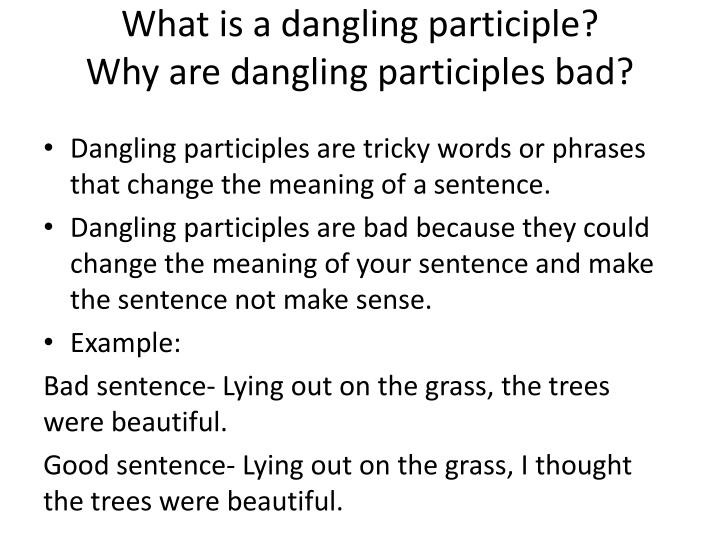

When the participle is used adverbially, but its implied subject is not the same as the subject of the main verb, the entire participial clause is given the genitive case. The particple ὄντες is nominative masculine plural, matching the subject of κατηλλάγημεν (we were reconciled). If the implied subject of the participle is the same as the subject of the verb it is modifying (as it is here), the participle will match the case, gender, and number of the subject of that verb. While we were enemies, we were reconciled to God Quite often, the participle was used to give the context for the action expressed by the main verb in a sentence.

Other elements in the sentence contribute that information. In both English and Greek, participles do not communicate time directly.

In English, traditional grammarians have called this -ing form ( being) the "present" participle to distinguish it from the "past" participle been, although being can clearly be used to talk about things that are not in the present, and been can be used to talk about things that continue in the present. Notice that the sentence contains no focus at all on the beginning or ending of being a dentist, but only on the process or experience. This is one of the roles of the participle of "be": to add a verbal sense, a progressive aspectual sense, to a phrase. We are no longer talking only about the profession, "dentistry." We are now talking about the ongoing experience of being in that profession. Obviously, the phrase "being a dentist" replaces the noun "dentistry," but how does that impact the meaning? In the second sentence a verbal element is added. While the vast majority of verbs in English can be used in this way, one verb has a much more specialized set of uses: the verb to be.


 0 kommentar(er)
0 kommentar(er)
